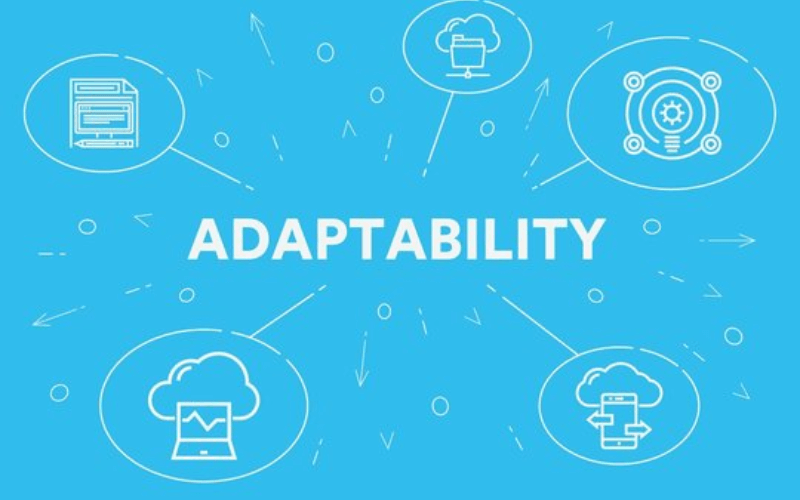Many businesses are
transitioning to a digital workplace in the age of digital transformation. For
businesses wishing to change their project management and overall business
operations during this shift, benefits of agile software development are
numerous.
Agile refers to methods for
developing software that place an emphasis on incremental delivery, teamwork,
ongoing planning, and continuous learning rather to trying to release
everything at once near the end.
Adopting agile methodology helps
software developers offer value to their clients more quickly and with fewer
issues by using an iterative approach to software development and project
management.
The Agile method of software
development aims to adapt to shifting consumer demands. It consistently prioritizes
technical quality and business value, delivering the most crucial features
first.

In this article, we’re going
to expand upon the benefits of agile software development and explain why they
are compelling reasons to consider this method.
Advantages
of adopting agile methodology
If you ask any software
developer or manager how they handle projects, they'll probably mention Agile
or one of its variants, such as Scrum or Kanban.
Agile's popularity may make
it seem overly exaggerated, yet it truly aids software development teams in
completing projects quickly and providing clients with top-notch goods.
In most businesses, agile
has supplanted waterfall as the preferred technique of developing software. These
businesses, which want to change how they handle projects and do business
overall, are ideal candidates for the agile methodology.
In the following, we have
gathered some of the main benefits of agile software development.
🟣 More
predictability
Projects are more likely to
be completed on schedule, under budget, and with a higher-quality outcome
thanks to agile software development's iterative process than they would have
been without it.
It's because features are
developed and tested throughout the entire unified process rather than being
implemented mindlessly by different software developers at various points in
time in a linear approach.
If you want to increase the
effectiveness and quality of your workflow, adopting agile methodology in a
cross-functional development team seems to be the solution.
🟣 Fewer
complexities
One of the main benefits of
agile software development is that it aids in the reduction of complexity in
the process.
It is not necessary for the
core programming team to write, debug, and maintain everything all at once. Instead,
smaller teams of software developers iteratively work on several project
components simultaneously, completing their own job and then handing it off to
another team.
In other words, agile
software development processes are decentralized, so instead of completing the
task all at once, you can share it out across several teams working
concurrently.
🟣 Improved
quality
The majority of conventional
software development projects adhere to a strict testing schedule, with
software testing taking place only upon project completion.
Bugs and other flaws that
you could have easily fixed earlier would have accumulated by the time you
ultimately tested it. The quality of the software is affected since the
majority of traditional teams cut corners with testing.
One of the benefits of agile
software development is that it divides the project into numerous, controllable
pieces. By adopting agile methodology, the team can concentrate on high-quality
development, teamwork, and testing by doing this. Moreover, iterations involve
frequent builds, testing, and reviews.
With the aid of this
technique, the team may swiftly locate issues and discover expectation
mismatches throughout the early phases of development.
Each iteration of these
incremental releases will culminate in a fully tested and functional product
thanks to the work being done on them. The product's quality is raised in this
way.
🟣 Better
cost-efficiency
Agile is the most
comprehensive software development methodology for software developers since it
considers erratic corporate objectives and customers. The business gains a
competitive edge by being able to react swiftly to changes in client
expectations.

One of the other benefits of
agile software development is a significant cost savings on all work produced.
This is because fixing errors found earlier will take less time and resources.
Since agile processes
encourage continuous deployment throughout the agile software development
lifecycle, you can make changes quickly without incurring additional costs or
devoting additional time to planning, rewriting documents, creating new product
features, innovative development cycles, exploring user stories, etc.
🟣 Engagement
of Stakeholders
Before, during, and after
each sprint, adopting agile methodology provides several chances for team and
stakeholder involvement.
Software developers and the
client collaborate considerably more closely because clients are involved in
every stage of development. This provides the team with more chances to
comprehend the client's vision for the finished product on a deeper level.
By producing functioning
software frequently and early, teams increase the likelihood that stakeholders
will have faith in their capacity to provide high-quality working software.
Therefore, one of the least
noticed benefits of agile software development is that it motivates stakeholders
to take an active role in the development process.
🟣 Increased
customer satisfaction
The customer won't truly
know if the final product fulfills their criteria until the project is over
because they aren't involved in the usual development process.
Agile methodology calls for
active client participation throughout all development phases. An Agile team
addresses stakeholders like a software developer or tester rather than assuming
what they want.
Additionally, by adopting
agile methodology, during sprint review meetings, the project team shows the
software to all stakeholders. Customers receive early access to the software in
this way, assisting teams in producing software that customers love.
When customers know exactly
what to expect from your team, they can better plan their needs around agile
software development.
Additionally, this is
advantageous for agile teams because it will result in reduced pressure when customers
are awaiting new features or fixes that haven't been created but are required
to address customer needs after sprints have ended.
🔘 Read More: How to Build Customizable And User-Friendly E-learning Software
🟣 Shorter
time for ROI
In conventional methods, software
developers only release the product after the entire development cycle has been
completed. Thus, until the final delivery, the stakeholders do not see a return
on their investment (ROI).
This can be a concern for
businesses in markets with quick turnover given how protracted conventional
development cycles can be.
Software releases are made
more quickly by adopting agile methodology and therefore, a shorter time for
ROI is one of the most important benefits of agile software development.
After the first sprint, you
have usable software, and after a few more iterations, you may have a product
that is "ready to market."
🟣 Better
adaptability
Organizations get
increasingly complex as they expand. Anything tends to slow down as it becomes
more sophisticated. Existing players must adapt to the startups' heedless
alterations to the rules in every industry.

Therefore, in order to stay
competitive, businesses emphasize speed, yet speed alone won't enable you to
create a system that is more effective.
Agile is becoming more and
more popular among businesses for this reason. Their software developers can
plan and finish tasks in manageable chunks thanks to it.
Due to changes in demands,
market conditions, etc., organizations using traditional software project
management techniques must expend more effort modifying the plan. It also takes
longer.
But by adopting agile
methodology, teams can readily make modifications to the plan without exerting
much effort because incremental releases are made, and each iteration is
followed by feedback.
As a result, any changes or
maintenance are added to the backlog and scheduled for the following sprint
based on their importance to the business.
🟣 Increased
transparency
One of the most beneficial
benefits of agile software development is transparency. By adopting agile
methodology, all teams are easily aligned because everything is specified
properly from the beginning.
Software developers and
stakeholders can keep an eye on everything from planning to deployment and
provide regular feedback to the software before and after each sprint to make
sure all goals are achieved.
To keep everyone informed
and on the same page, daily reports and technologies are used to update all
stakeholders.
With an agile methodology,
clients have a rare chance to be involved at every stage of the software
development project, from feature prioritization to iteration and meetings to
regular software builds with new features.
Conclusion
Agile software development
is a style of development approach that predicts the need for flexibility and
incorporates a certain amount of pragmatism to the delivery of the final
product. It is often known as just Agile.
Agile software development
necessitates a cultural change in many businesses since it emphasizes the clean
delivery of specific software components rather than the full solution.
Due to the benefits of agile
software development, projects are more likely to be completed on schedule,
under budget, and with a higher-quality outcome.
It's because features are
prototyped and tested throughout the entire unified process rather than being
implemented blindly by different software developers and programmers at various
points in time in a linear approach.
Without a question, agile is
a strong and effective approach to software development and benefits of agile
software development cannot be ignored.
Therefore, adopting agile
methodology can be the best option for you if you have a software project with
a lot of uncertainty. Contact our development agency to get help with your
development project.